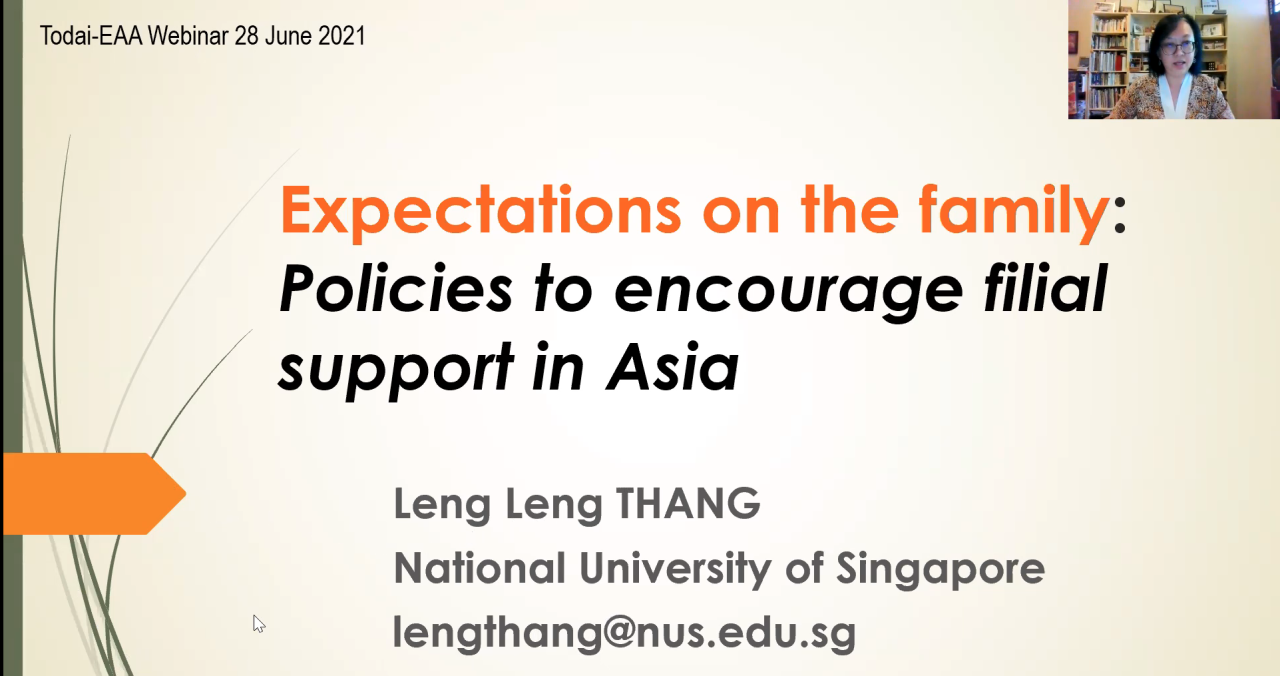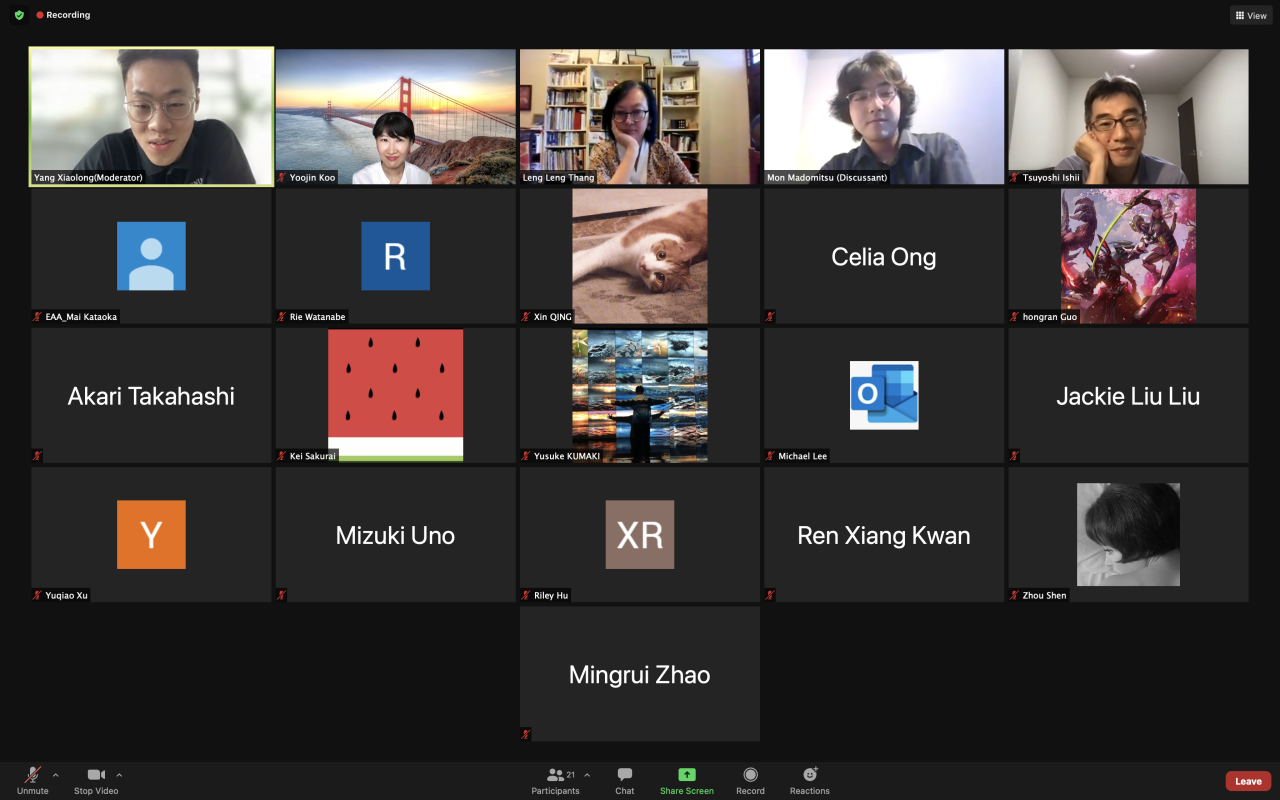Ageing related issues have emerged to be one of the most prominent and hotly debated academic discourses in the entire world of social sciences, and perhaps even more so for scholars with a particular substantive interest in East Asia. Professor Thang Leng Leng from National University of Singapore is an established and influential scholar who has been conducting numerous important research on ageing related issues i.e., productive ageing, intergeneratinal gap, elderly care, social welfare policy (making and evaluation), intra/international labour mobility etc., with a special curiosity for Japan, Singapore and other Asian countries. Prof. Thang’s academic interests originated from her post-undergraduate fieldwork as she interacted with some Japanese elderlies and learnt that their lives were in fact, quite different from the conventional depiction that regrettably, largely marks only dependency and inactivity. More observations and revelations have then led her to pursue her graduate training as an anthropologist in the United States before her current tenureship at NUS’s department of Japanese Studies.

Prof. Thang was invited to EAA to give a talk on June 28, 2021, that aims to provide an analysis and discussion on the impact of Asian states’ policy on promoting elderly care, or in a more cultural tone, filial support. Addressing a wide audience of both EAA affiliates (EAA Youth, professors and research staff) and those interested outside of EAA or even UTokyo (around 30 people attended from Japanese, Chinese, Australian and American universities and high schools), Prof. Thang first brought the debate to the table by sharply identifying the cultural tension between individualism (thusly individualisation) and filial piety, pointing to the importance of government policy in promoting elderly care as the demographics of Asian societies become increasingly older and skewed. Next, basing on Prof. Thang’s book chapter Social-cultural Aspects of Ageing in Asia: Policies for Family and Filial Support (assigned as recommended reading beforehand), Prof. Thang provided Singapore, India and China’s cases to compare and contrast how the main elements (i.e., scope for parents/children stated in the law; amount of money; punishment if violated etc.) of filial responsibility law differ; these valuable insights then in turn encouraged the audience to ask many interesting questions.
In the Q&A session, both students and professors raised their unique opinions on many topics, for example, the pros and cons of changing intergenerational dynamics and potential problems in addressing the realistic concern of declining filial support through a powerful, but visible hand (the governments). What was particularly memorable to many was, as much as an internal responsibility that filial support seems to our generation now, such a perception could quickly change in a span of several generations as Asian societies continue to go through individualisation and fundamental demographic shifts, to much less so, and an increasing effort on familial, societal and governmental support for the elderly population, if neglected, hence shall only result in catastrophes that either directly or through spillover effects, negatively impact the economic, political and societal development of Asian nations. Therefore, it would not be an exaggeration to state that owing to Prof. Thang’s talk and every participant’s effort in showing up, we all became a more vigilant, or even wary (in a conducive way), part of the society in the face of ageing related issues.

The talk was brought to an end as Prof. Ishii gave us a wonderful ending remark where he thanked the initiative and participation. A huge thank you to Prof. Thang for her kindness for fitting this talk in her busy schedules and for the truly educational talk. Big thank you also to Prof. Ishii and Prof. Yoojin from UTokyo EAA for patiently touching base on every single detail of the event organisation, and most importantly, for showing unprecedented and genuine deep trust in permitting us – the year three and four undergraduates, to independently organise and moderate the event, in its entirety. The best way of learning is by doing, and it would be absurd to deny that the ones most involved in the process of making the talk happen are the ones benefited the most from the entire event. So Thank you. For those who devoted labour in the organisation, specific thanks goes to Madomitsu Mon for the numerous zoom calls we had to prepare and finalise the detailed plan, which was rather all too trivial; big thanks to Xin Qing for her well thought out and lovely drawn artwork – saying that it is only a poster would certainly be an understatement.
Reported by Xiaolong Yang (EAA Youth)








